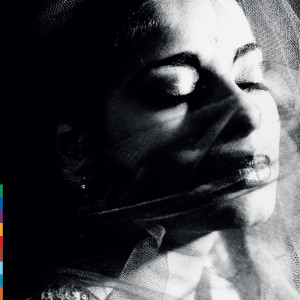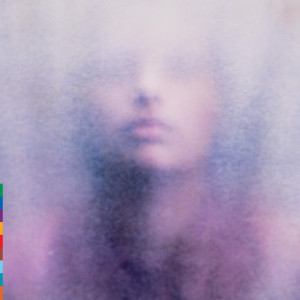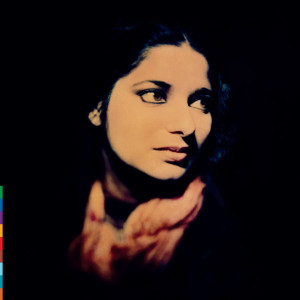 Sheila Chandra is the best and most accomplished singer I’d never heard of. Fortunately, that has been remedied as Real World Records reissues the landmark trilogy of solo vocal albums from the 1990s by this U.K. singer of Indian descent. They sound just as fresh, arresting, and revolutionary to my ears in 2023 as they surely must have when first released.
Sheila Chandra is the best and most accomplished singer I’d never heard of. Fortunately, that has been remedied as Real World Records reissues the landmark trilogy of solo vocal albums from the 1990s by this U.K. singer of Indian descent. They sound just as fresh, arresting, and revolutionary to my ears in 2023 as they surely must have when first released.
After a couple of years as a teen actor for the BBC, Chandra formed the group Monsoon with Steve Coe (who became the band’s and Chandra’s long-time producer) and bass guitarist Martin Smith, and they had a multi-national hit single and Top 20 U.K. hit with the electro-dance pop song “Ever So Lonely.” It got her on Top of the Pops in 1982, popularized the sound of the U.K. Asian diaspora, and began her boundary-breaking career.
Monsoon broke up shortly thereafter over creative differences with their label, and over the next seven years Chandra made five experimental vocal albums on Coe’s Indipop label. Then she took five years off to develop her art without the pressure of needing to record and perform and in 1990 released Roots & Wings on which she first began to explore the connections between English and Celtic folk and Indian vocal traditions.
“Paul James from the folk group Blowzabella, who had played on the Monsoon album, pointed me towards the best female British folk singers like June Tabor and Maddy Prior,” she says. “And I realised that many of the vocal ornaments that are used in British folk are also used in Indian music.” That set her on a new direction, one that was explored on these three albums, recorded and released between 1992 and 1996 in Peter Gabriel’s Real World studio and label.
Weaving My Ancestors’ Voices
She begins her newly focused solo career audaciously with “Speaking In Tongues I.” A bit like Scottish mouth music, this is performed in what she notes is “the centuries-old vocal percussive technique known as ‘konnakol’ where rhythms are communicated through onomatopoeic syllables.” It’s a way of singing the part of the tabla, part teaching technique and part impressive performance. She had been singing konnakol for some time, and recording it since at least as early as 1985’s Roots & Wings. She obviously had more examples of this planned, if not in the can, because she numbers the two tracks on this album, implying there are more to come. The second one is a shivery and very sexy whispered konnakol with several effects added to the track – particularly some gated reverb and a deep echo that sounds like about a half-second delay.
Weaving is a true world music album on which Chandra introduces many other influences on her basic sung repertoire. As a statement of where her art is taking her now, she reimagines her global hit “Ever So Lonely” without the Bollywood stylings, pairing it with meditational verses from “Eyes” and “Ocean.” “Dhyana And Donalogue,” is an utterly unaccompanied melding of Celtic and Asian song styles; on “Nana – The Dreaming” she displays is mostly wordless singing of a beautiful slow melody over tanpura-like drones; “The Enchantment” finds her again blending Celtic and Indian styles in a love son or perhaps a devotional; “The Call” is a musical representation of the Islamic muezzin’s call to prayer; “Bhajan” is a droning raga; “Sacred Stones” a melodic mantra paired with Gregorian chant with Chandra singing all of the harmonies. She sends us away blissfully with “Om Namaha Shiva,” one of the most common Hindu and Shiva mantras with occasional vocal flourishes. It’s multi-tracked with increasing layers of reverb added, eventually sounding like it’s a single-voiced choir in a large cathedral or cave or temple.
Chandra delves further into other cultures’ music that pairs well with her style and her spirituality. There are two more installments of “Speaking In Tongues,” with “III” including deep reverb and a looped short phrase with multiple phased echoes. The fourth version strings together her konnakol vocals in lots of brief sections of wildly various electronic and studio effects, which she and her crew were capable of recreating live. She also puts greater focus on both drones and feminism. The feminist anthem “La Sagesse (Woman, I’m Calling You)” is a melismatic Southern gospel paired with South Asian influences while “Shehnai Song” is a pretty straight Indian Classical style of wordless vocal singing backed by a deep drone. She sings a prison song “En Mireal Del Penal” in Spanish and a tribute to Von Bingen in the Latin chant “Abbess Hildegard.” “Waiting” is a spiritual love song reminiscent of Maddy Prior’s solo work, backed by an electronic tanpura style drone. More British folk influence shows up in Sandy Denny’s “A Sailor’s Life,” which she sings totally solo but for a subtle electronic drone (and no instrumental break as Fairport fans might be expecting). “Love It Is A Killing Thing” sounds like it could be a Celtic, English or Appalachian ballad; totally unaccompanied, with great attention paid to the sound design of the track, the melisma drawing from gospel, Appalachian and British traditions.
<
The centerpiece is the spoken word “Woman And Child,” her poetic statement of a woman’s acceptance of and love for her body recited with superb emotive power over a multi-layer drone. This had to have been startling and even controversial in the mid-90s, and it’s certainly still relevant today.
The third piece of the trilogy, abbreviated ABCD, moves from a mostly electronic setting to mostly acoustic. In six tracks over 45 minutes of mostly wordless, slowly chanted vocalizing, she takes us on a meditative journey. The first has a Celtic feel to it, with her sampled voice seeming to comprise the backing multi-layered drone – a slower Enya. The second is more of those orchestral synth drones plus a Jew’s harp and occasional interspersed vocalizing. Her strident wordless vocals rise out of a very deep drone on the third, and her breathed long notes float atop droning organ and horn sounds on IV. The fifth is pure shimmering orchestral synth ambiance until her voice comes in in the final few seconds, although it seems that her voice has been there in the drone all along. The climax is VI, beginning with what sounds like an actual tanpur, with very meditative vocals over the sounds of ocean waves.
With this final installment, Chandra has moved about as far from pop music as she can go, prefiguring the ambient drone music that’s quite common today. As the set’s publicity notes, “The six tracks are a window on Chandra’s innermost creative world – an unexpectedly original examination of the usually taken-for-granted but essential element of Indian tradition, the drone itself.”
In the early 2000s she collaborated with the Ganges Orchestra on This Sentence Is True (Indipop, 2001), worked with the multicultural English folk supergroup Imagined Village in 2007, and did some film score work, particularly for Lord of the Rings. Then tragically in 2009 she was diagnosed with Burning Mouth Syndrome, a condition that causes excruciating and long-lasting pain when she sings or talks, laughs or cries, and she was forced to retire from performance and recording. She says that, although she cannot listen to them because she’d be tempted to sing along, this trilogy is her favorite among her works, and she’s pleased to see them released again in this deluxe vinyl edition. They are, indeed, aural treasures from one of the greats.
(Real World Records, 1992, 1994, 1996; reissued 2023)


